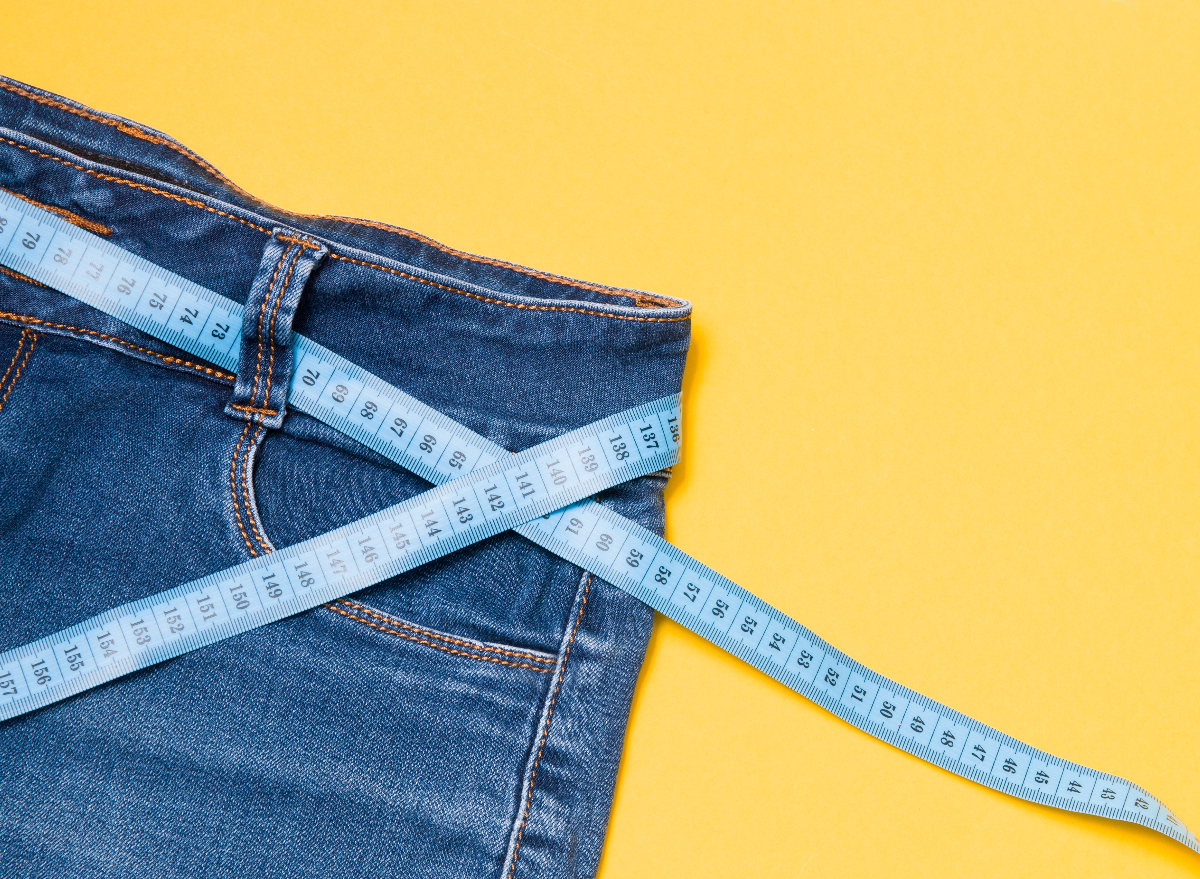It’s no secret that your body endures many changes as you age. One of the most challenging things to accept is that losing weight gets harder as you get older. The funny thing (Well, not so funny!) is how easy and quick it is to gain extra pounds. Know that you are definitely not alone. We spoke to experts to find out why it’s harder to see the scale moving in a more favorable direction. They also break down how you can tackle weight loss as you get older.
Now let’s get into the specifics. Keep reading to learn more, and when you’re done, be sure to check out the 10 best Sam’s Club foods to buy for weight loss.
Just as your body changes with age, so do your hormones. Amy Shapiro, MS, RD, CDNfounder and principal of Real Nutrition, a private practice based in New York City dedicated to healthily and successfully educating clients on nutrition, weight and overall health optimal, explains: “Hormonal changes occur in both men and women. Women experience decreased estrogen levels during menopause, linked to an increase in belly fat. Men experience reduces testosterone levels, reducing its regulatory effects on fat distribution, muscle strength, and muscle mass.”
Men and women can also experience a decrease in growth hormone as they age. Shapiro tells us the main function of growth hormone is to preserve muscle and strength. This decline will also reduce your resting metabolic rate. For example, you can exercise, manage stress properly, and eat a healthy diet to alleviate most of the symptoms that come with menopause. But it’s best to talk to your doctor to see if other steps should be taken.

You may notice with age that your sleeping habits change. It may take you longer to fall asleep, and you may wake up frequently throughout the night or even wake up earlier in the morning than before. “Sleep deprivation has an effect on dysregulation of the neuroendocrine appetite control system, which alters metabolic rate,” says Shapiro. “There is an increase in ghrelin levels – the hunger hormone – when sleep time is restricted, which can lead to increased food intake and poor energy-dense food choices.”
It is important to determine the cause of your sleepless nights. Small changes like not using your cell phone before bed, meditating, or even changing your pillow can help. If not, it may be time to talk to a healthcare professional.

If you don’t know, after age 30, your body begins to lose muscle mass. In fact, research shows that your muscle mass can decrease by 3% to 8% every 10 years after turning 30. The rate is even higher once you turn 60.
“Naturally as you age, your muscle mass will decrease over time,” explains Shapiro. “Because muscle uses more calories than fat mass, the number of calories you burn at rest is also reduced.” Needless to say, you need to keep your muscle supply up to date to lose weight.

Physical activity is good for your mind, body and soul as well as your weight loss efforts. This becomes increasingly true as you get older. “In addition to muscle loss, declines in muscle strength and endurance/stamina can lead to physical inactivity or decreased ability to exercise,” says Shapiro.
So if you lead a more sedentary lifestyle, it’s time to fix that. For example, strength training is often overlooked, but it is one of the most beneficial types of exercise you can include in your routine; it helps you stay active and addresses age-related muscle loss. “[Strength training] is essential in preventing muscle loss and maintaining muscle mass and strength, which will help maintain resting metabolism. Maintaining muscle strength will also help you be more active,” Shapiro emphasized.

It’s something your metabolism slows down as you get older Lisa Young, PhD, RDNThe author of Finally plump, finally slim, a private practice dietitian and member of our Board of Medical Experts, and Shapiro both spoke. According to Young, “Metabolism slows as we age due to reduced muscle mass, influenced by factors such as [gender] and body size.”
What do you do about this annoying metabolic slowdown? Well, one way to solve the problem is to control your portion sizes at meals. This can be done by using smaller plates and bowls, and paying attention to when you are truly hungry and full.
“Portion size is just as important as what you’re eating,” Shapiro told us. “Eating too much of anything, including protein, can turn into fat. Especially as metabolism slows with age, it’s even more important to keep track of how much you eat. ask yourself before taking the second dose whether you need that or not.” Just craving it.”

As you get older, it’s important to reassess your lifestyle to ensure you’re being proactive and optimizing your chances of losing weight. For example, according to Young, regular exercise is important for boosting metabolism and building muscle. We’ve already covered the benefits of adding strength training to your routine, so be sure to do it as soon as possible!
It’s also important to follow a balanced diet full of vegetables, fruits, healthy fats, whole grains, and protein sources. “Plant-based diet [that’s] High in fiber, complex carbohydrates, lean protein and healthy fats, making for a nutrient-dense diet, will keep you full longer between meals, explains Shapiro. It’s also low in saturated fat, which comes mainly from high-fat foods. protein and animal fat products. When too much saturated fat is consumed, it can cause inflammation and increase ‘bad’ LDL cholesterol.”
One of the most surprising habits is making sure you drink plenty of water. Drinking enough water will improve your metabolism, make you feel full and help you avoid consuming extra calories.
Above all, “identify what you can change,” Shapiro emphasizes. “There are physiological changes that you cannot control as you age, but lifestyle adjustments can always be your own decision. Start with planning better nutrition and increasing activity Physical fitness can make a difference.”
#reasons #hard #lose #weight #older
Image Source : www.eatthis.com


